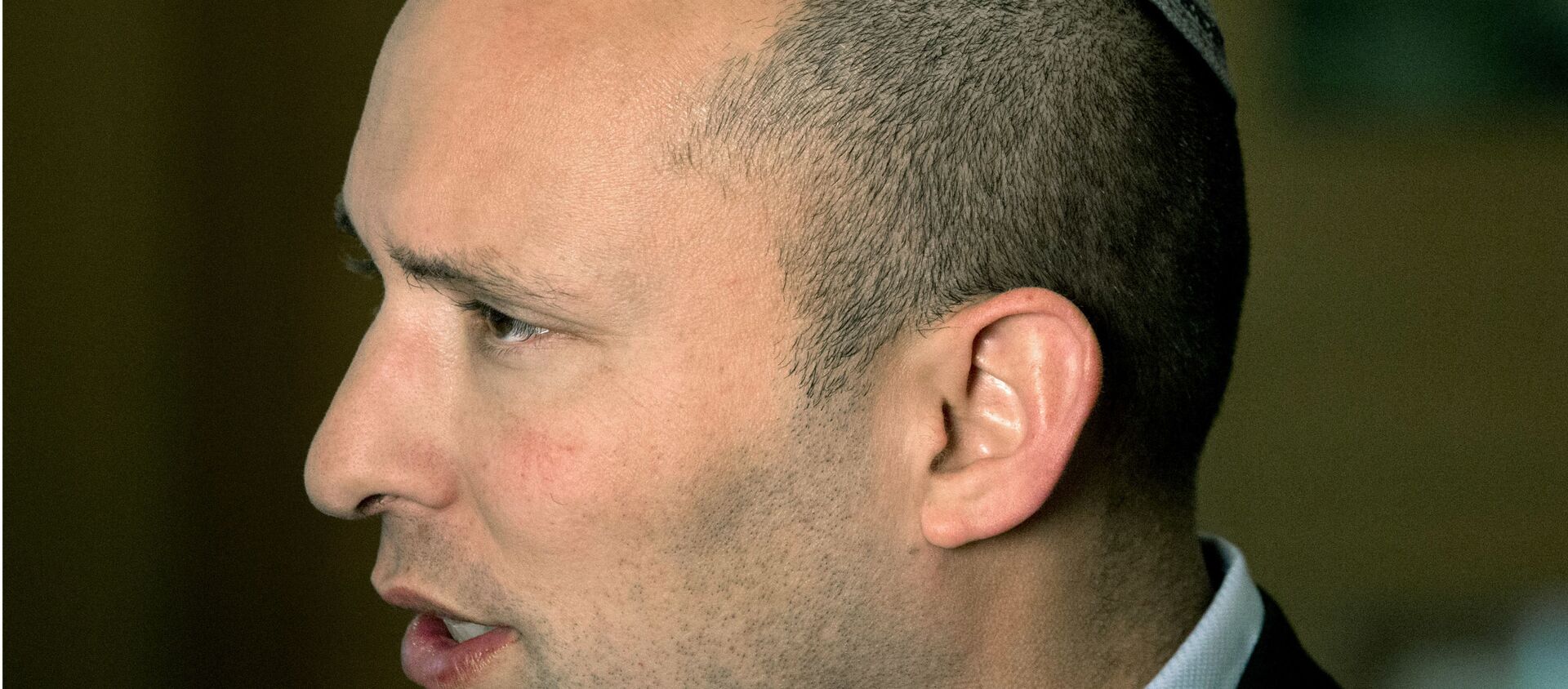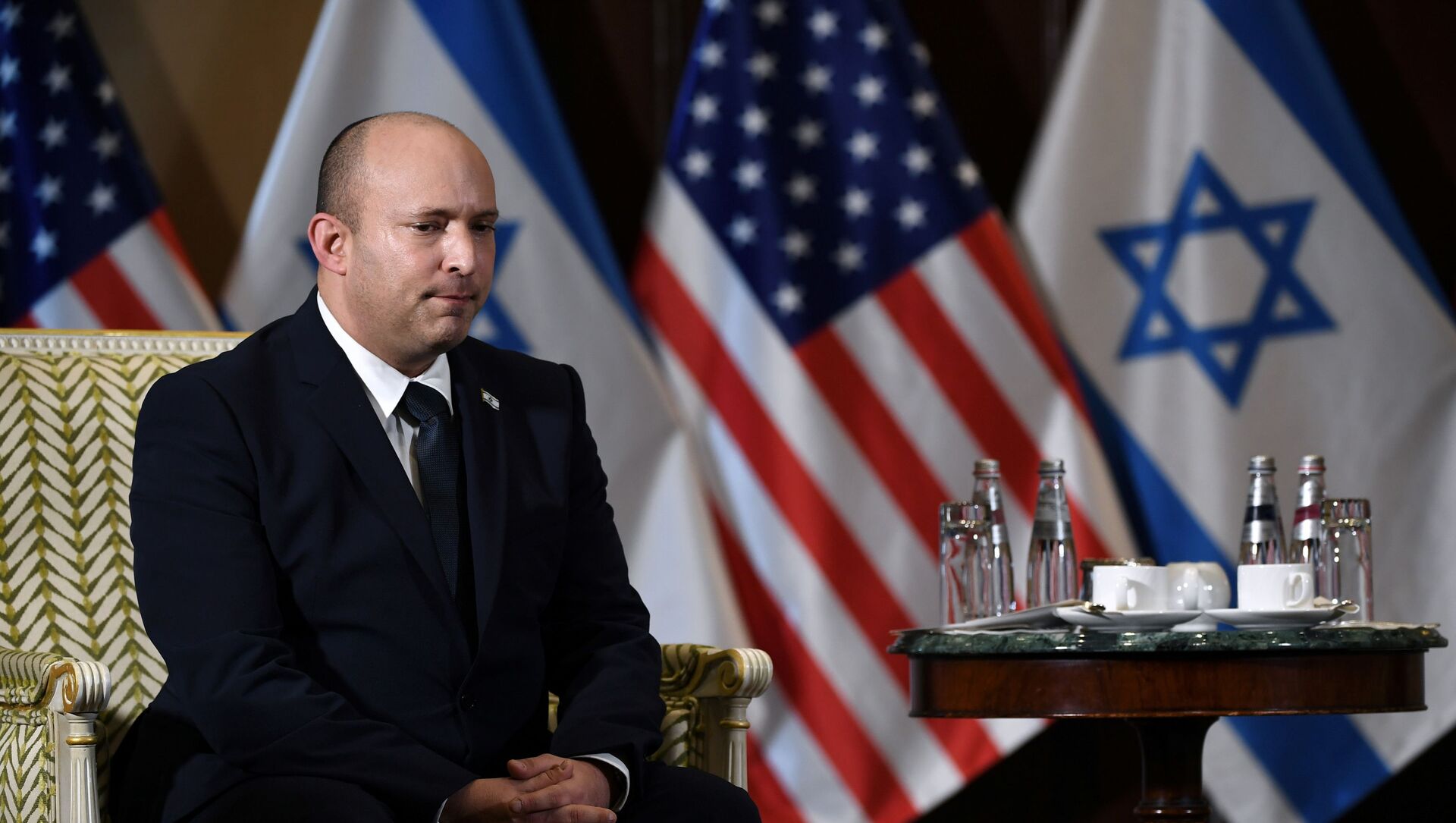https://sputnikglobe.com/20210828/israeli-prime-minister-not-to-make-concerns-over-iran-nuclear-deal-public---reports-1083742263.html
Israeli Prime Minister Not to Make Concerns Over Iran Nuclear Deal Public - Reports
Israeli Prime Minister Not to Make Concerns Over Iran Nuclear Deal Public - Reports
Sputnik International
MOSCOW (Sputnik) - Israeli Prime Minister Naftali Bennett does not plan to publicly campaign against the 2015 Iran nuclear deal and expects relations with US... 28.08.2021, Sputnik International
2021-08-28T22:30+0000
2021-08-28T22:30+0000
2022-12-07T10:18+0000
world
newsfeed
middle east
us
israel
iran
naftali bennett
joe biden
nuclear weapons
https://cdn1.img.sputnikglobe.com/img/07e5/08/1c/1083742225_0:0:3068:1734_1920x0_80_0_0_0b10dceec8612f6d63fc89e6ed889b8c.jpg
"Prime Minister Bennett told the president that regardless of policy differences he wants to work according to rules of honesty and decency," a senior Israeli official who attended the Friday meeting between Biden and Bennett at the White House said, as quoted by Axios on Saturday."This is how I want us to work. If you have an issue with something we do call us and don’t go to the press," Bennett told Blinken, as quoted by Axios, according to Israeli officials.In 2015, Iran signed the Joint Comprehensive Plan of Action (JCPOA, or the Iran nuclear deal) with the P5+1 group of countries (the United States, China, France, Russia, the United Kingdom - plus Germany) and the European Union. It required Iran to scale back its nuclear program and severely downgrade its uranium reserves in exchange for sanctions relief, including lifting the arms embargo five years after the deal's adoption. In 2018, the US abandoned its conciliatory stance on Iran, withdrawing from the JCPOA and implementing hard-line policies against Tehran, prompting Iran to largely abandon its obligations under the accord.Biden said on Friday after talks with Bennett that the United States was prepared to use other measures to stop Iran from developing nuclear weapons if diplomacy fails.
https://sputnikglobe.com/20210825/israels-bennett-eyes-coalition-with-arab-nations-to-curb-irans-influence-1083708718.html
israel
iran
Sputnik International
feedback@sputniknews.com
+74956456601
MIA „Rossiya Segodnya“
2021
Sputnik International
feedback@sputniknews.com
+74956456601
MIA „Rossiya Segodnya“
News
en_EN
Sputnik International
feedback@sputniknews.com
+74956456601
MIA „Rossiya Segodnya“
Sputnik International
feedback@sputniknews.com
+74956456601
MIA „Rossiya Segodnya“
newsfeed, middle east, us, israel, iran, naftali bennett, joe biden, nuclear weapons
newsfeed, middle east, us, israel, iran, naftali bennett, joe biden, nuclear weapons
Israeli Prime Minister Not to Make Concerns Over Iran Nuclear Deal Public - Reports
22:30 GMT 28.08.2021 (Updated: 10:18 GMT 07.12.2022) MOSCOW (Sputnik) - Israeli Prime Minister Naftali Bennett does not plan to publicly campaign against the 2015 Iran nuclear deal and expects relations with US President Joe Biden to achieve better results, Axios reports citing two sources.
"Prime Minister Bennett told the president that regardless of policy differences he wants to work according to rules of honesty and decency," a senior Israeli official who attended the Friday meeting between Biden and Bennett at the White House said, as quoted by Axios on Saturday.
Two US sources told Axios that Bennett said on Friday that he believed dialogue between the United States and Israel would achieve better results, although he was still against a US return to the Iran nuclear deal.
"This is how I want us to work. If you have an issue with something we do call us and don’t go to the press," Bennett told Blinken, as quoted by Axios, according to Israeli officials.
Barbara Leaf, one of Biden’s top Middle East advisers, said in a conference call with representatives of Jewish organizations on Friday that the US-Israeli relationship was off to a good start and that Biden also wants "drama free" communication, two people who were on the call told Axios on Saturday.

25 August 2021, 09:51 GMT
In 2015, Iran signed the Joint Comprehensive Plan of Action (JCPOA, or the Iran nuclear deal) with the P5+1 group of countries (the United States, China, France, Russia, the United Kingdom - plus Germany) and the European Union. It required Iran to scale back its nuclear program and severely downgrade its uranium reserves in exchange for sanctions relief, including lifting the arms embargo five years after the deal's adoption. In 2018, the US abandoned its conciliatory stance on Iran, withdrawing from the JCPOA and implementing hard-line policies against Tehran, prompting Iran to largely abandon its obligations under the accord.
Biden said on Friday after talks with Bennett that the United States was prepared to use other measures to stop Iran from developing nuclear weapons if diplomacy fails.



